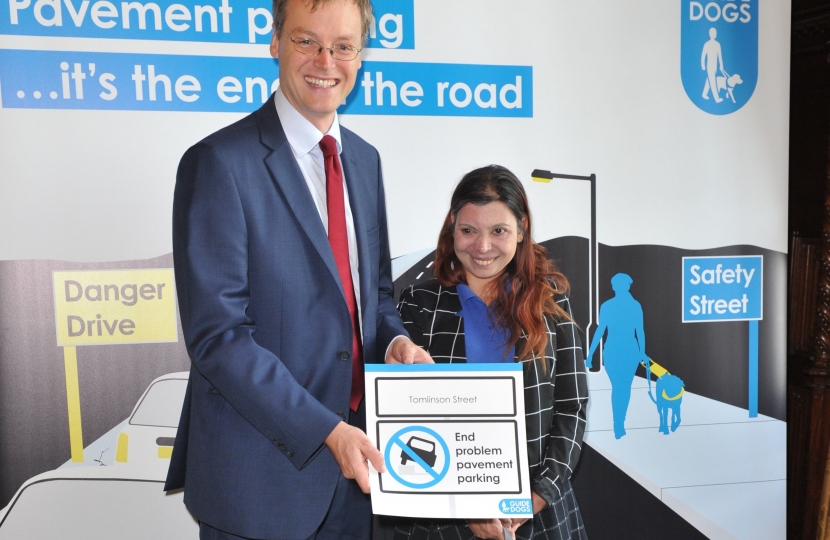
This week in Westminster Michael attended a Guide Dogs event at the House of Commons on 3 July. They are highlighting the very real dangers posed to blind and sight impaired people when drivers park their cars on the pavement.
At the event, the Michael heard from guide dog owners how parked cars blocking the pavement force them to walk in the road, into the path of traffic they cannot see. He heard that some guide dog owners face these dangerous situations on a daily basis, risking their safety every time they go shopping or make the school run.
Research by YouGov for the charity Guide Dogs shows that 54% of UK drivers admit to parking on the pavement, with more than a quarter (29%) of those doing so a few times a month or more. More than half (55%) of these drivers do think about the impact on people with sight loss, but park on the pavement anyway.
Pavement parking particularly affects people with visual impairments, parents with pushchairs, wheelchair users and other disabled people. According to a Guide Dogs survey, 97% of blind and partially sighted people have encountered obstacles on the pavement, and 9 out of 10 have had problems with pavement parked cars.
Guide Dogs is campaigning for to make pavement parking an offence, except in areas where local authorities grant specific exemptions. This is already the case in London, but elsewhere across the country, councils struggle to tackle unsafe pavement parking because they can only restrict it street by street.
Michael said “No one should be forced to brave traffic by cars parked on the pavement. Blind and partially sighted people should be able to walk the streets without fear.”
Our research shows that most drivers who park on the pavement know that it can be dangerous for pedestrians, but many do so regardless. That’s why we need clear rules so that drivers only park where it’s safe.